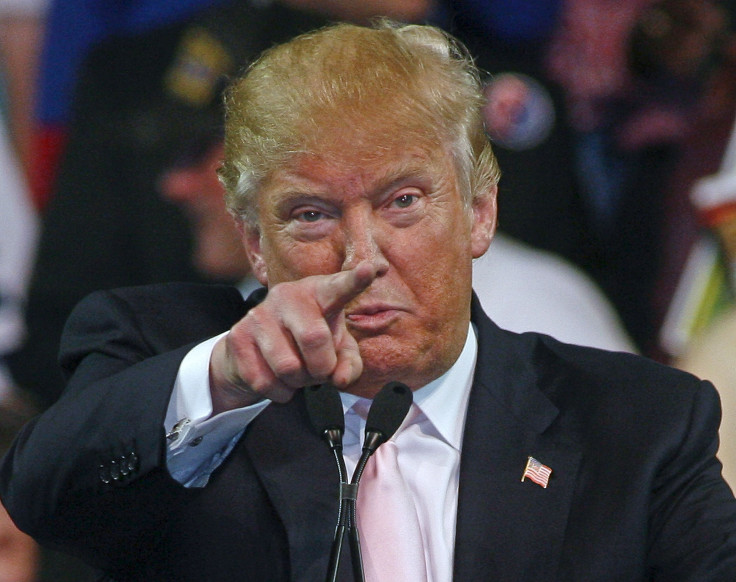Georgia Super Tuesday Results: Trump A Winner, Clinton Fends Off Sanders

Business mogul Donald Trump continued his sweep of the 2016 GOP Republican nominating contest by winning Georgia Tuesday in a night that was predicted to be a blow-out victory for him across the nation. In the Democratic primary, former Secretary of State Hillary Clinton also racked up another victory in her contest against Vermont Sen. Bernie Sanders, who has struggled to win over black voters, a crucial voting bloc in the South.
The state’s GOP and Democratic primaries for president came after candidates crisscrossed Georgia for weeks, hoping to finish first on Super Tuesday. Trump held a rally in Georgia Monday night, while Florida Sen. Marco Rubio, who was second in the polls in Georgia, also visited the state.
"Anger. Anger seems to be the primary motivator for many of our voters, and that is certainly seen by the seething campaign coming out of Donald Trump," Republican strategist Brian Robinson told local reporters.
Opinion polls showed Trump ahead of the pack in almost all of the 11 states holding Republican elections Tuesday: Alabama, Arkansas, Georgia, Massachusetts, Oklahoma, Tennessee, Texas, Vermont, Virginia, Alaska and Minnesota. Clinton was also beating Sanders in national polls, potentially clearing the way for a Clinton vs. Trump showdown in November.
Trump was ready for the fight at a rally in Ohio Tuesday, saying she "does not have the strength or the stamina to be president."
More delegates were up for grabs in Georgia than any of the other 11 Super Tuesday states aside from Texas. Georgia's 21 days of early voting came to a close Friday, and droves of voters cast ballots Tuesday.
"When Hillary Clinton comes to town the amount of times that she's come, when you see Bernie Sanders here all that time, that means that this is a big state and it matters," Democratic strategist Theron Johnson told local media.
Georgia holds a so-called "open" primary, meaning voters are able to cast a vote for any party at the polls.
© Copyright IBTimes 2024. All rights reserved.












